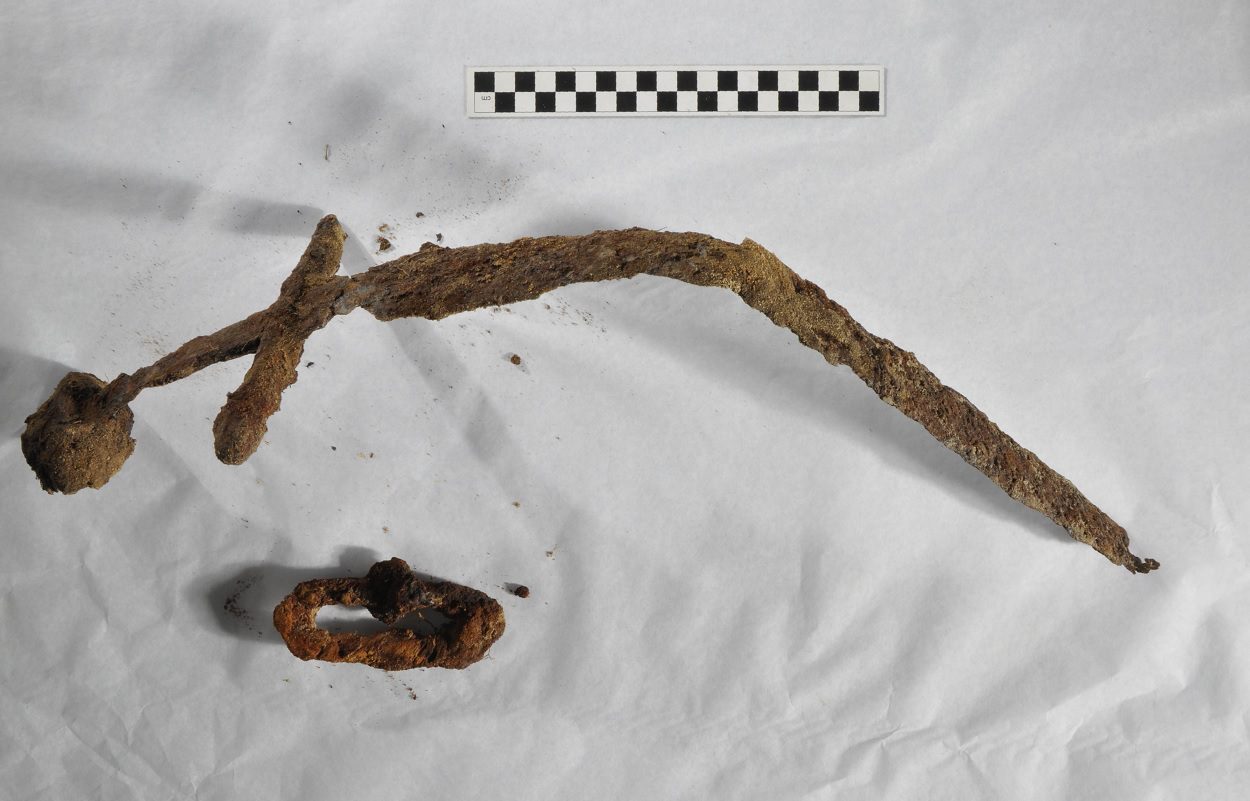Archaeologists conducting excavations in the town of Salo in Finland have uncovered a cemetery containing Crusader Era burials.
The Crusader Era in Finland refers to the period when Swedes brought Christianity to Finland, known as the First Swedish Crusade. Academics debate whether this crusade actually took place, as there’s no corroborating archaeological data and the earliest written sources of the crusade are from the late 13th century.
In August 2023, a local landowner noticed an iron object in the soil removed to place a pipe trench in the vicinity of a medieval stone church. Upon closer inspection, the object appeared to be a sword, which was reported to archaeologists from Turku University and the Turku Museum Centre.
According to the researchers, the sword, which dates from between AD 1050 to 1150 during the Crusader Era, was found with a bent blade, a bar-like straight hilt, and a three-sided oval pommel. In the soil pile, archaeologists also found part of the scabbard, additional blade pieces from the sword, iron objects, and human remains.

One of the most notable finds is a leather belt with thirty square rosette-patterned bronze ornaments. This was found with a buckle, several end and animal head buckles, strap dividers, and parts of the leather still preserved.
A wider study has confirmed a mortuary cemetery, evidenced by grave pattern along the pipe trench that suggests possibly dozens or even hundreds more burials remain in situ.
According to a press announcement by the Turk University, “The observation can be considered very significant from a research point of view, because cremation cemeteries from the time of the Crusades are clearly less known in Finland than cremation cemeteries that preceded them in time. So far, this is also the only confirmed burials dating to the end of the Iron Age from the Salon or Uskelanjoki valley. Also notable, is the fact that the deceased have been buried in the cemetery with Christian customs.”
Header Image Credit : Riikka Saarinen





